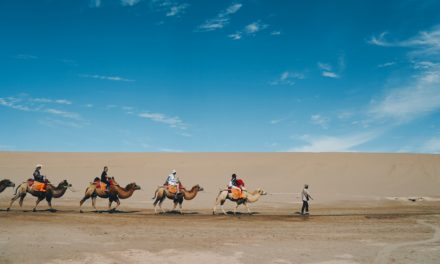Acts 4:23–31: Praying for Boldness
Introduction
Although the religious leaders had sought for an excuse to punish the apostles with severity in order to deter them from continuing to speak in the name of Jesus, they ultimately could only threaten them and release them (Acts 4:15–21). How, then, will the church respond? Will the church give thanks to God for the deliverance, but then resolve to avoid any future run-ins with the authorities? Will they allow a root of bitterness to grow against those who attempted to oppress them? Or, will they become fleshly and self-dependent, boasting in their own strength? In a tremendous example of prayer in the church in Acts 4:23–31, we learn how we ought to react to this event. Namely, we must learn dependence upon the Lord, since Christians must suffer boldly for Jesus.
Discussion Questions
1. To whom did the apostles go when they were released from the custody of the Sanhedrin (v. 23)? What did they say? What was the effect of their report? What does the word “together” in v. 24a tell us about the nature of their prayer together? What does the word translated “Sovereign Lord” mean (v. 24b)? What aspects of God’s sovereignty does the church emphasize (v. 24c)?
2. Why does the church stress the inspired nature of Psalm 2 in their prayer (v. 25)? What does this quotation of Psalm 2 affirm? How does this shape the church’s view of Christ’s suffering (v. 27)? Who all was involved in the conspiracy against Jesus (v. 27)? How many nations does that group represent? How do their wicked actions fit into the sovereign power of God? Why does the sovereignty of God over providence factor into the church’s prayer?
3. How does “now” connect the sufferings of Jesus with the sufferings of the church (v. 29a)? From psalms that call upon the Lord to “see” or “look” upon the evil of the wicked, what is the church asking for when they ask God to “look upon” the “threats” of the leaders (v. 29b)? How does this posture avoid extremes that believers struggle with in considering God’s righteous judgment?
4. What does the early church pray for most (v. 29c)? How is this prayer answered (v. 31b)? What kind of boldness to speak God’s word do you need in your own life? How does this scene of praying God’s Word teach us about how we should pray for God’s boldness for ourselves? What is one detail you can apply from this scene to strengthen your own prayer life? How might you seek the power of God’s Holy Spirit for a circumstance in your life today?




